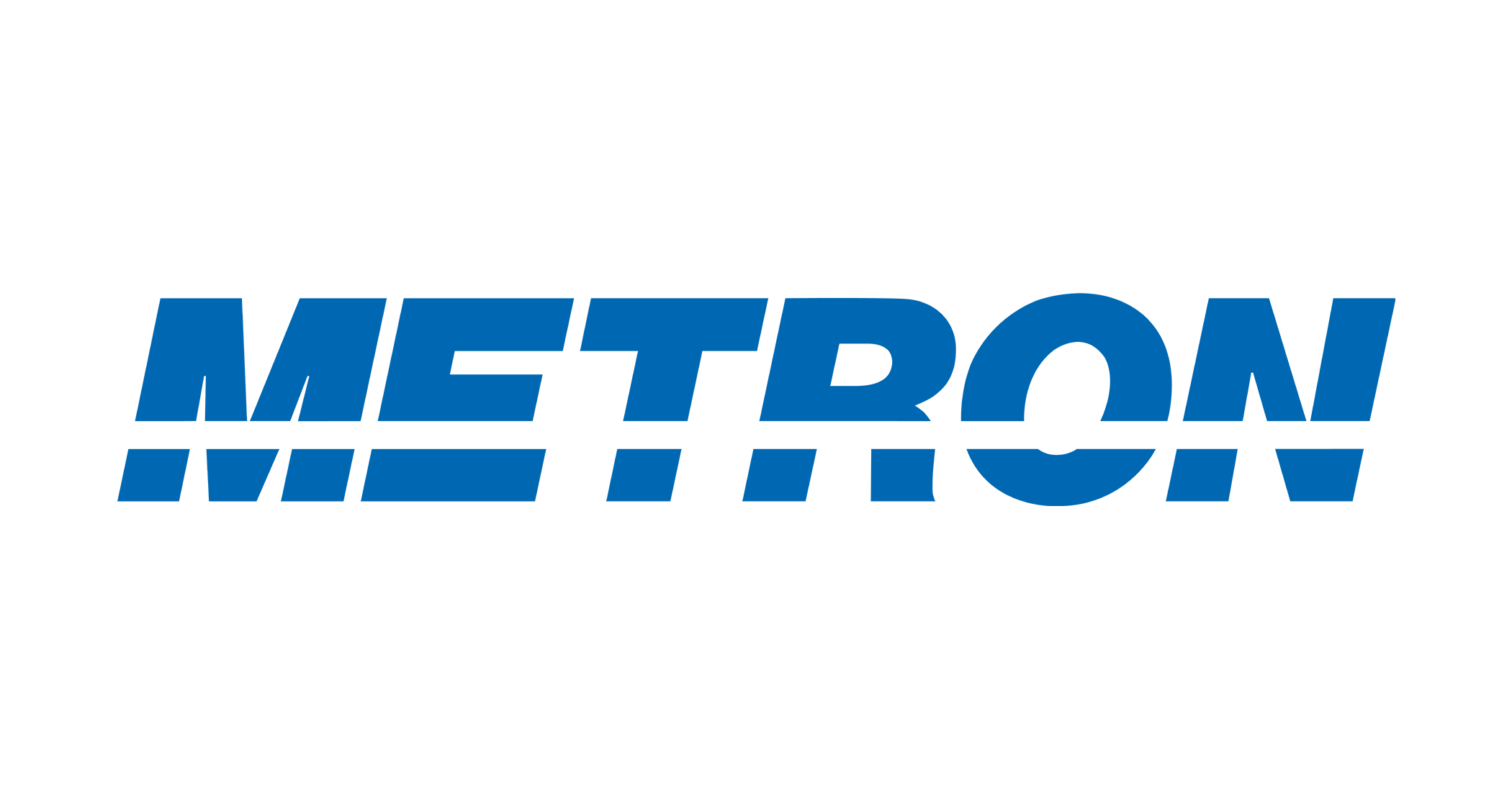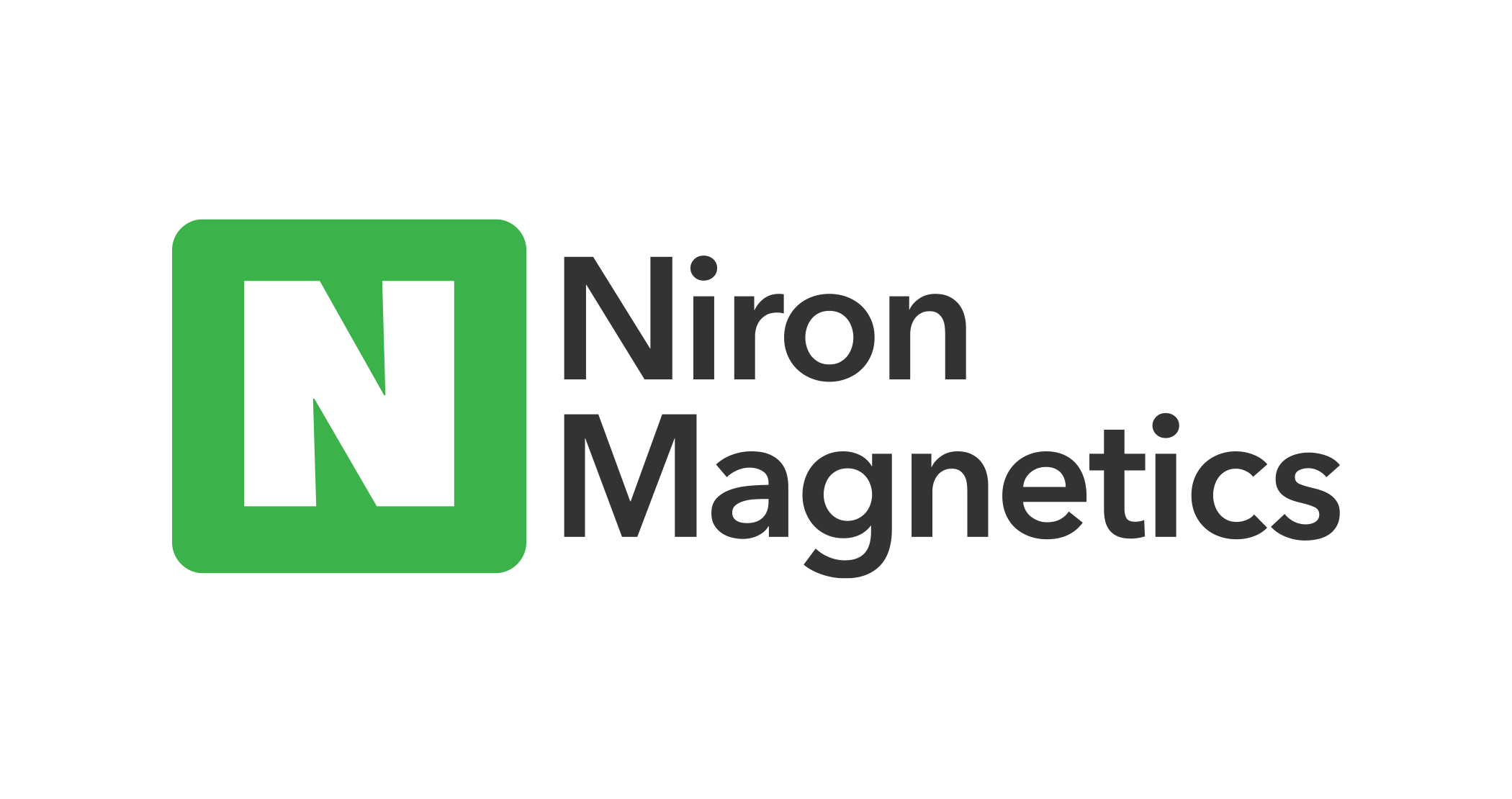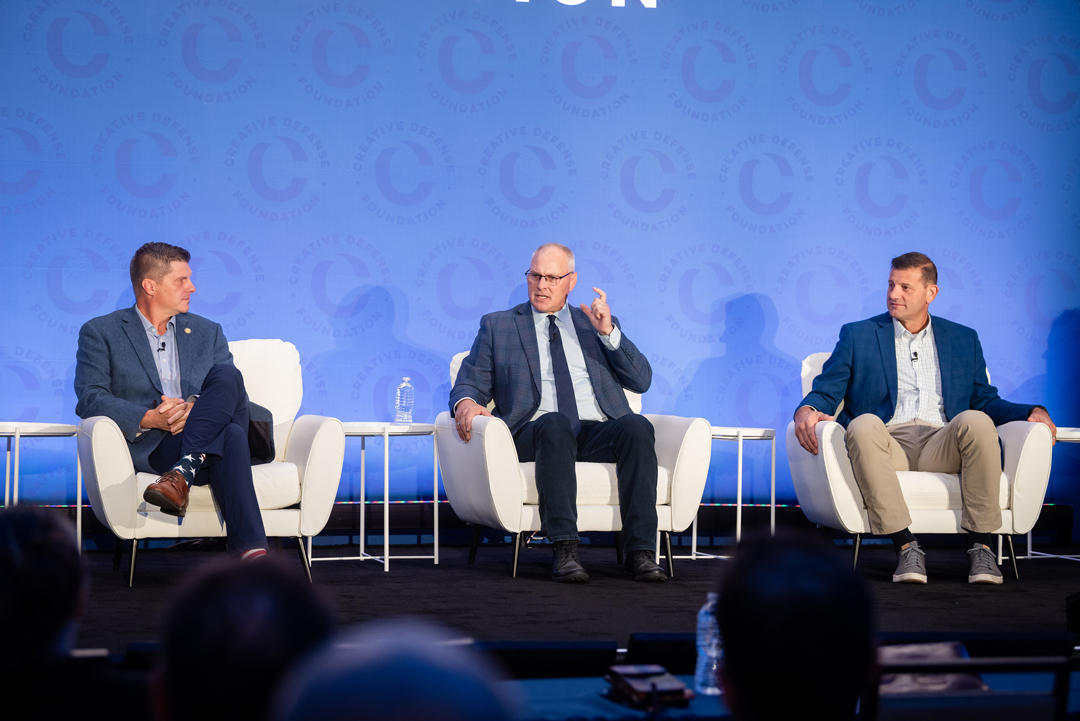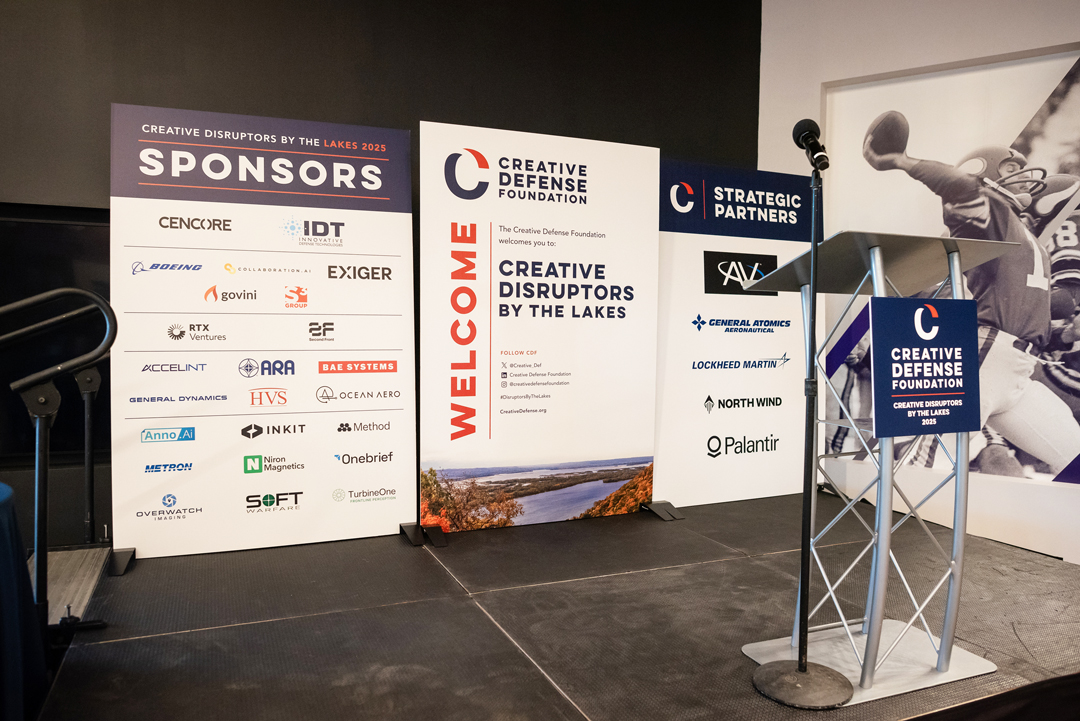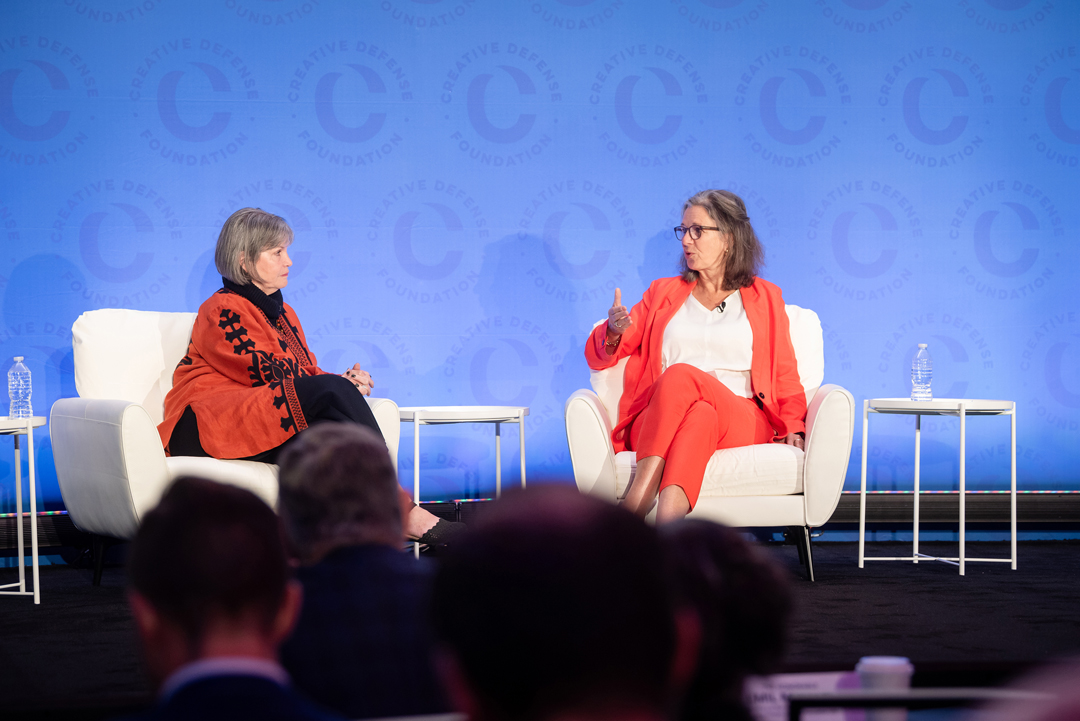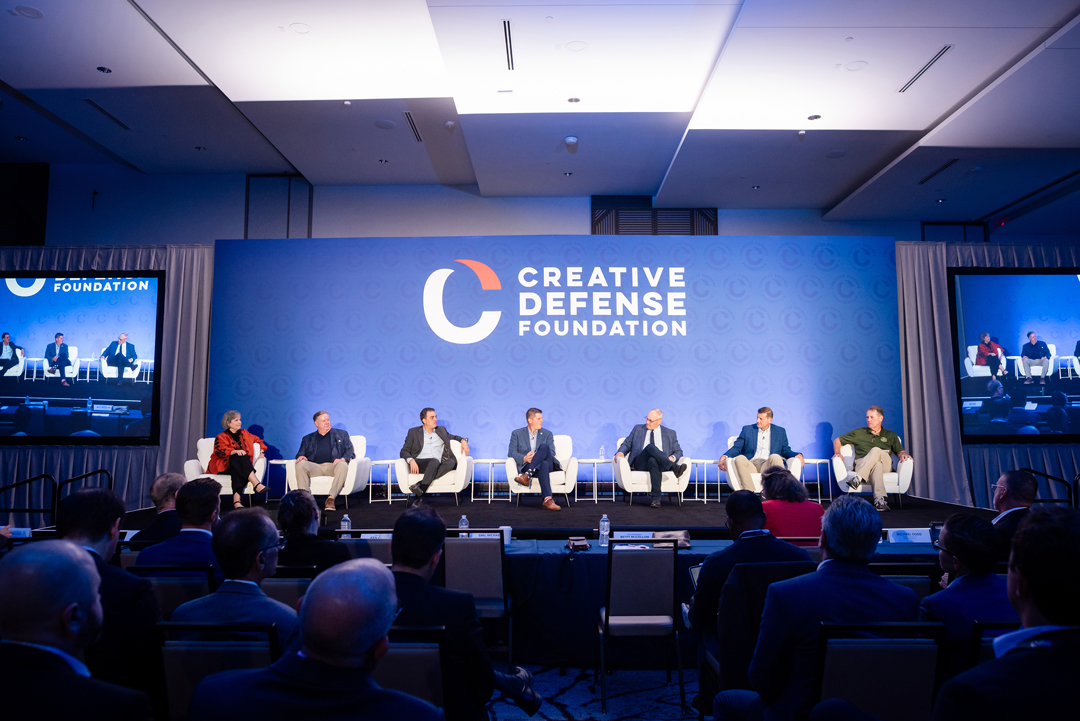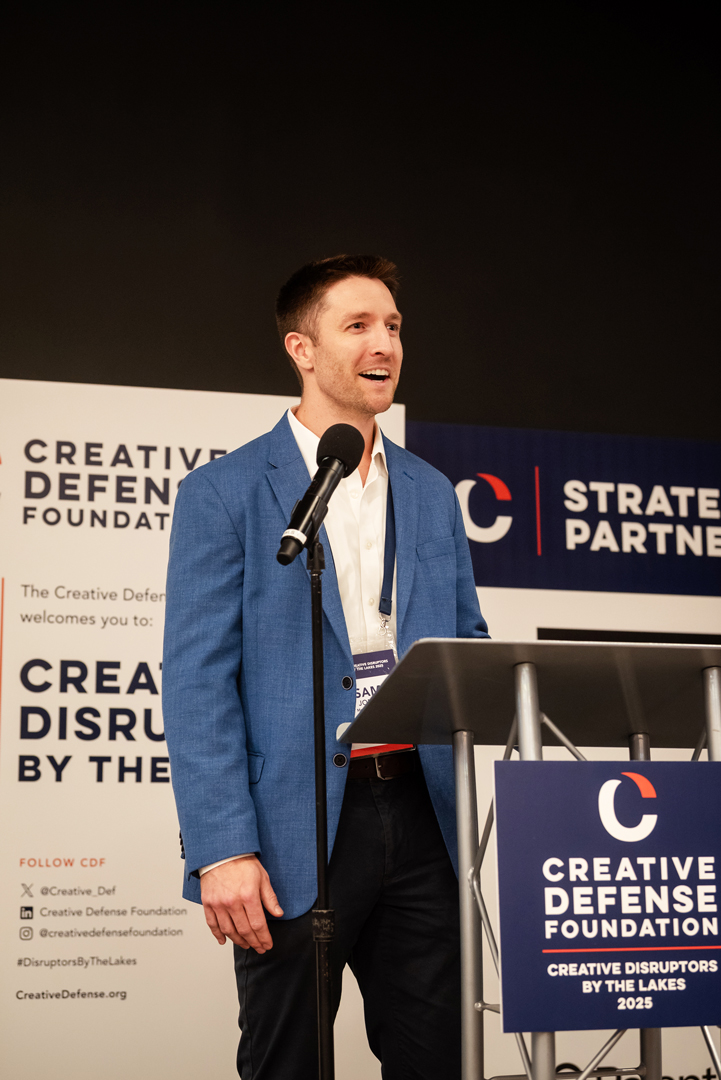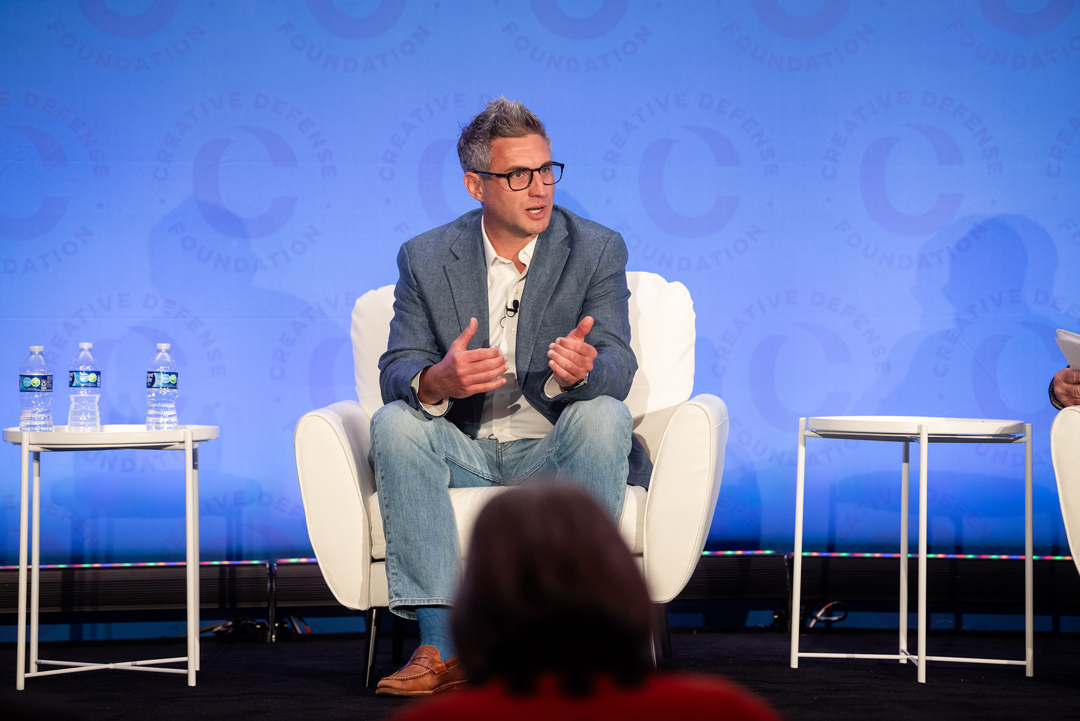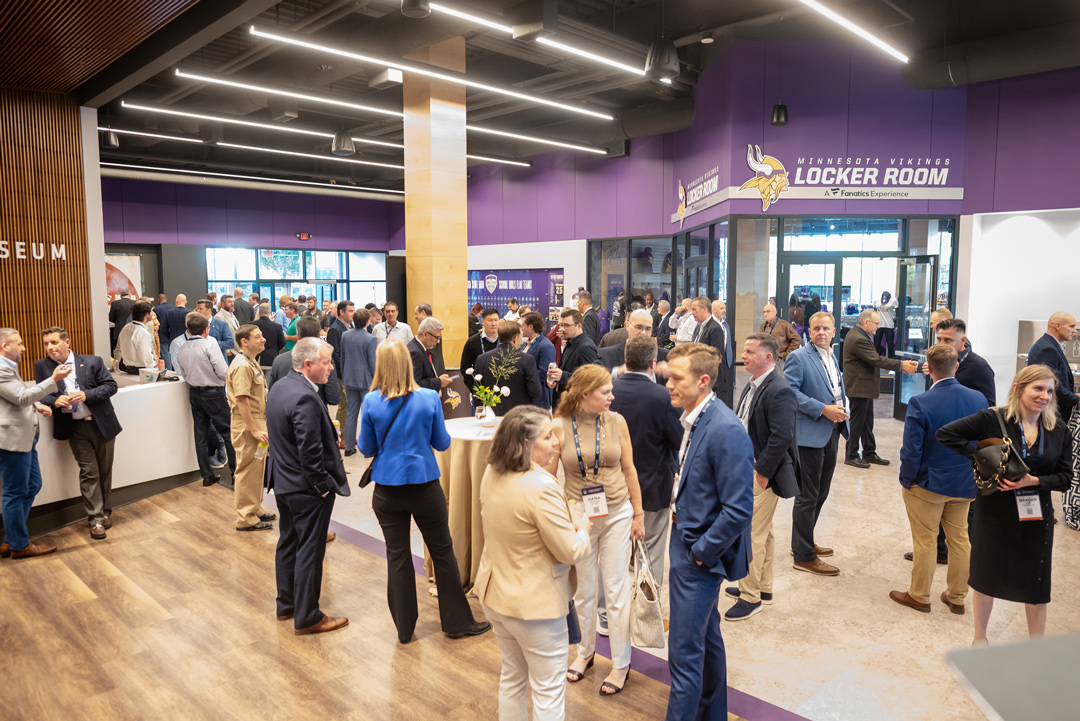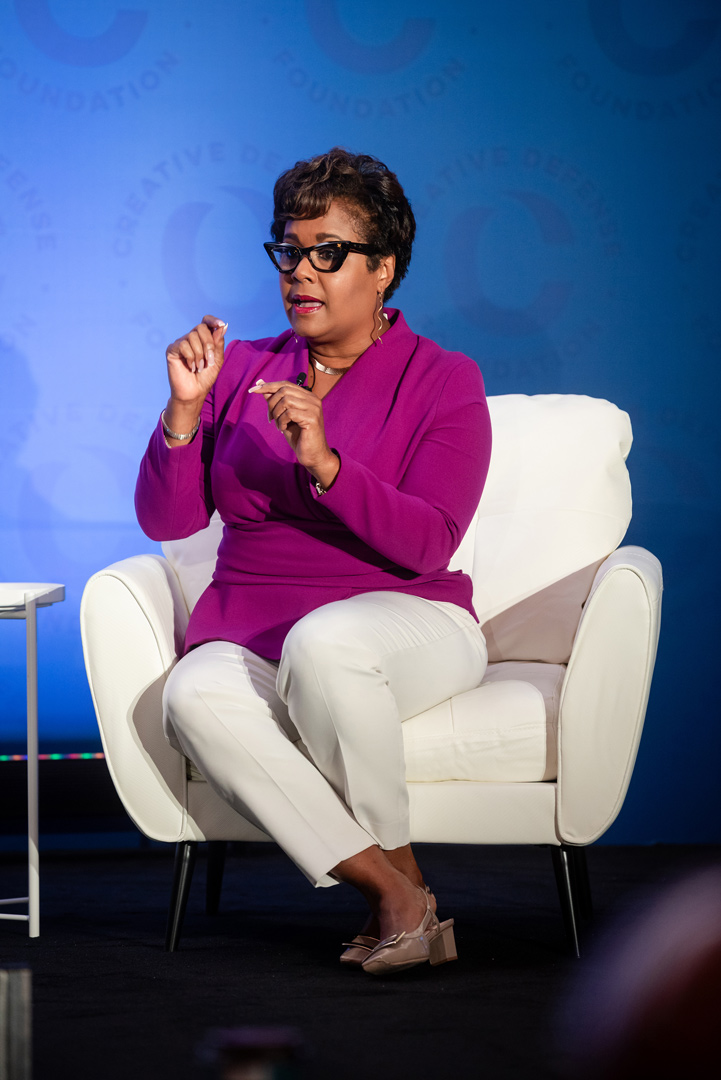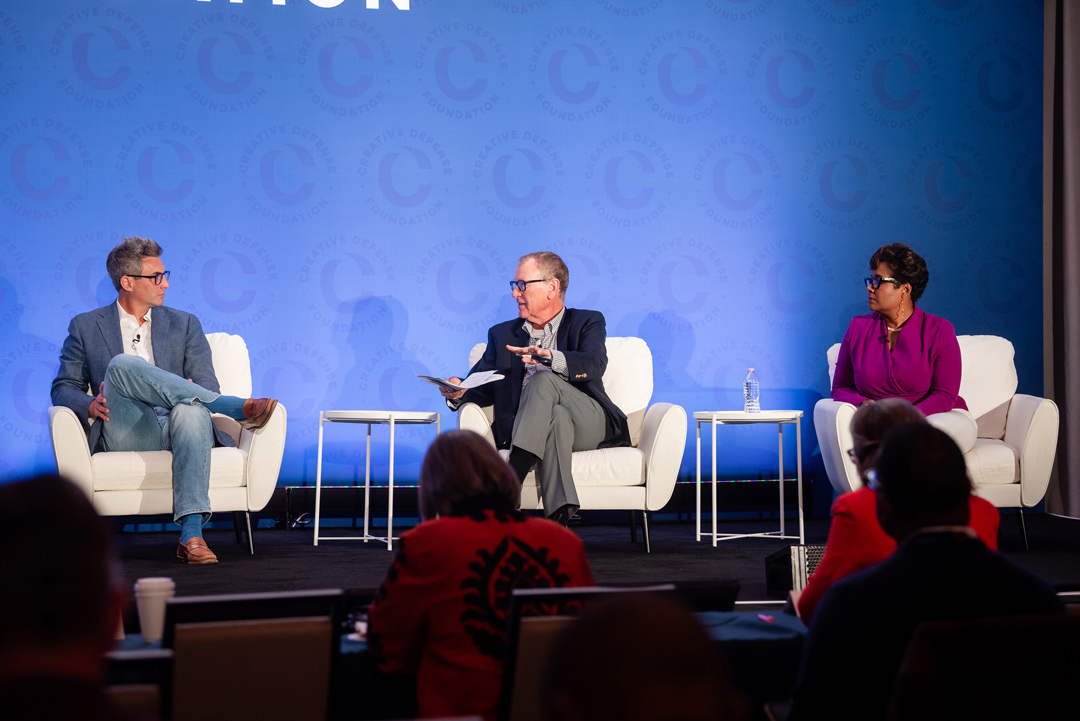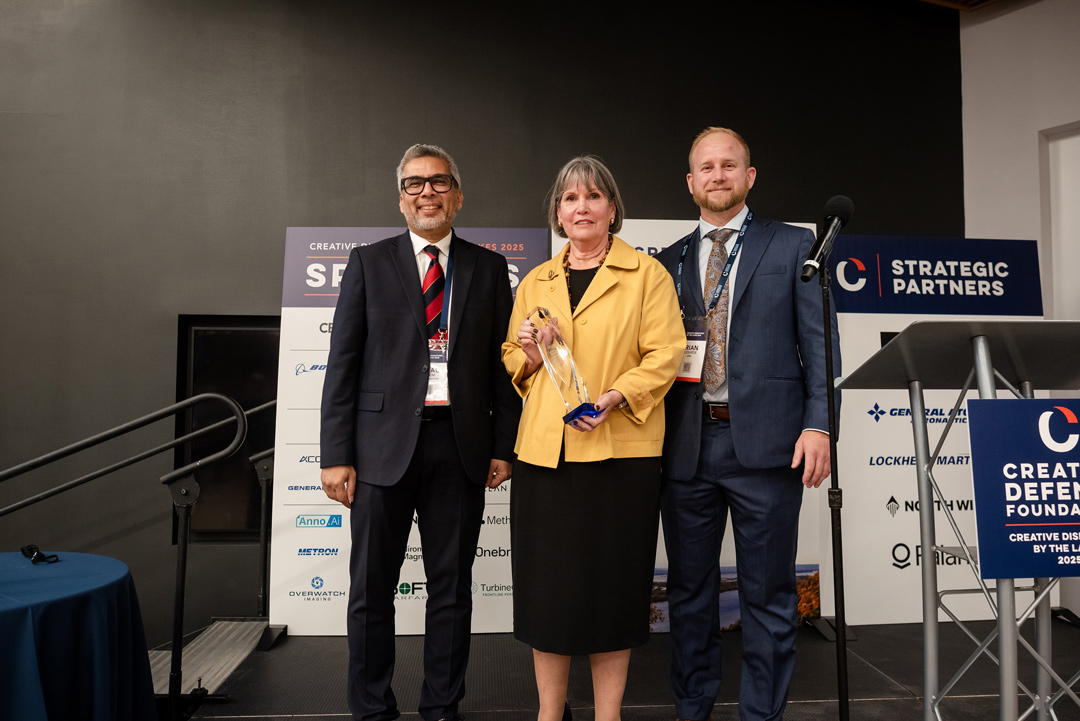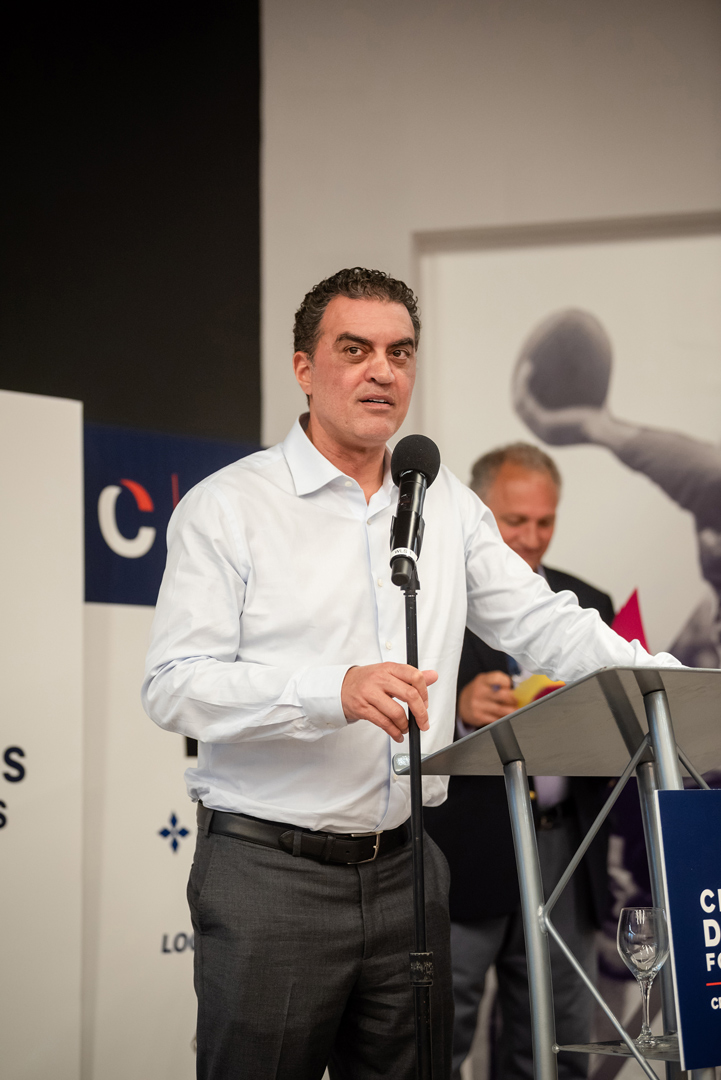ANNUAL RETREAT
Shaping the Future of National Security Investments
This retreat brought together senior national security leaders, investors, and innovators to accelerate reforms that will align our defense ecosystem with the speed, adaptability, and capabilities of America’s most innovative problem solvers.
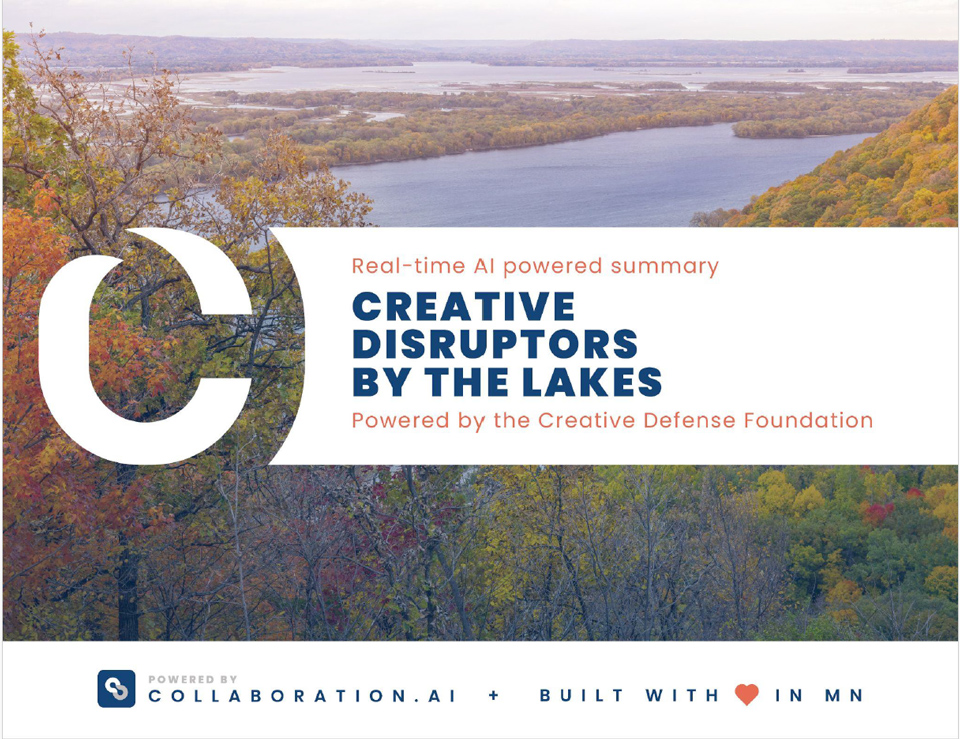
RETREAT REPORT
This report is password protected. Please email info@creativedefense.org to request password.
View Report
Agenda
Retreat Honorary Co-Host Messages
Congresswoman Betty McCollum, Congressman Ken Calvert, The Honorable Emil Michael
Congressional Leader Remarks
Congressman Brad Finstad, Congressman David Valadao, Congressman Ed Case, Congressman Pete Stauber
Featured Interview: Congresswoman Betty McCollum and Her Excellency Birgitta Tazelaar, The Ambassador of the Netherlands to the United States
Building on The Hague Summit Declaration adopted by NATO in the Netherlands and shaped by President Trump, this interview with Ambassador Tazelaar explored how to turn that commitment into action through NATO industrial cooperation.
Featured Interview: Congresswoman Betty McCollum and Steven Witt, CEO of Anno.Ai
With autonomous warfare reshaping the modern battlefield, this interview explored how the U.S. and its allies must empower innovators to lead the charge and emphasized the need for persistent testing and rapid iteration.
A Fireside Chat with The Honorable Emil Michael, Under Secretary of War for Research and Engineering
Moderated by:
Admiral John Richardson, USN (Ret), 31st Chief of Naval Operations
Admiral John Richardson, USN (Ret), 31st Chief of Naval Operations
Defense Leaders discussed the Trump Administration’s strategic direction to enhance the lethality of the U.S. warfighter, revitalizing the warrior ethos, and advance the doctrine of Peace through Strength. They discussed how these foundational principles will shape acquisition priorities and investments with an eye toward accelerating technological superiority, restoring industrial readiness, and reasserting American deterrence on the world stage.
Moderated by:
Congressman Ken Calvert
Congressman Ken Calvert
Moderated by the Chairman of the House Defense Appropriations Committee, this panel examined how exponential technologies are reshaping modern conflict and what it means for U.S. strategy. Panelists focused on four urgent priorities—defending against autonomous threats, employing offensive deception, fielding resilient autonomy, and countering cyber and social manipulation—and also discussed how to shape future national security investments to meet these challenges.
Moderated by:
Steve Cook, Senior Managing Director, Cerberus Capital Management
Steve Cook, Senior Managing Director, Cerberus Capital Management
This panel explored a new paradigm with venture-backed and privately funded companies building defense systems at private expense. Panelists discussed benefits such as private innovation, cost efficiencies and speed to market and also cultural and structural reforms needed to make this paradigm shift successful.
Moderated by:
The Honorable Ellen Lord, Former Under Secretary of Defense for Acquisition and Sustainment
The Honorable Ellen Lord, Former Under Secretary of Defense for Acquisition and Sustainment
Born out of transformative Trump Administration initiatives to rebuild American strength and revitalize homeland defense, the U.S. Space Force reflects a strategic shift toward confronting 21st-century threats with bold, high-tech solutions. The Trump Administration’s establishment of the Space Force and investment in layered homeland defense laid the groundwork for today’s integrated architecture combining space-based sensors, real-time targeting, and missile intercept capability. This panel explored how space-based assets enable early threat detection, agile response, and deterrence through dominance. Panelists discussed how these capabilities are reshaping America’s ability to detect, deter, and defeat attacks on the homeland advancing the Trump-era doctrine of peace through strength into the space age.
Moderated by:
Rich Carroll, Founder, Creative Defense Foundation
Rich Carroll, Founder, Creative Defense Foundation
As artificial intelligence becomes increasingly integrated into modern kill chains, validation processes must evolve to ensure reliability, accountability, operational integrity and be completed at the speed of relevance. AI-enabled kill chains introduce autonomous or semi-autonomous decision-making into critical steps of targeting, surveillance, and engagement, requiring new frameworks for testing, simulation, and ethical compliance. Traditional validation methods are insufficient when faced with adaptive, learning systems that may evolve behaviorally in complex environments. Additionally, validation must be continuous across the lifecycle as AI systems update or re-train on new data. This panel discussed the implications of this new paradigm.
Moderated by:
Adam Fife, CEO, CenCore
Adam Fife, CEO, CenCore
This session explored how current classification requirements may be preventing the Department of War from accessing the most powerful AI tools available. Topics included how to safely leverage commercial AI, create tiered access environments, and reform classification policy to enable accelerated capability delivery.
Executive Session – Securing the Arsenal: Building Commercial Surge Capacity for National Defense
Moderated by:
The Honorable Ellen Lord, Former Under Secretary of Defense for Acquisition and Sustainment
The Honorable Ellen Lord, Former Under Secretary of Defense for Acquisition and Sustainment
This session explored how the Civil Reserve Manufacturing Network can unlock surge capacity, fortify supply chains, and harness advanced manufacturing to outpace global competitors.
A: Empowering PEOs with SPEED/FORGED Authorities
Workshop A explored how to operationalize the SPEED/FORGED Acts’ empowerment of Program Executive Officers. Participants designed cross-functional teams, developed portfolio budget frameworks, and recommended reforms that allow PEOs to lead industrial acceleration efforts effectively and with authority.
B: 90-Day Validation Pathways
Workshop B explored how to validate and certify capabilities within 90–120 days using SPEED/FORGED Act authorities. The group designed test-informed approval models and proposed changes to validation, OT&E, and contracting that accelerate mission-ready fielding for software-intensive systems.
C: Strengthening Allied Industrial Base Cooperation
Workshop C addressed the next phase of allied defense collaboration following the historic Trump Hague Agreement, where NATO members committed to spending 5 percent of GDP on defense. With that agreement secured, the real work must now begin to operationalize its provisions, with urgency and coordination, across allied industrial bases. Participants examined mechanisms for joint sourcing, coordinated surge production, and cross-border validation—and focused on how trusted partners can align defense production and innovation pipelines. Drawing on the principles of the SPEED and FORGED Acts, the session aimed to develop actionable strategies to accelerate cooperative procurement, share critical technologies, and enhance interoperability through shared testing and validation frameworks.
GALLERY
STRATEGIC PARTNERS
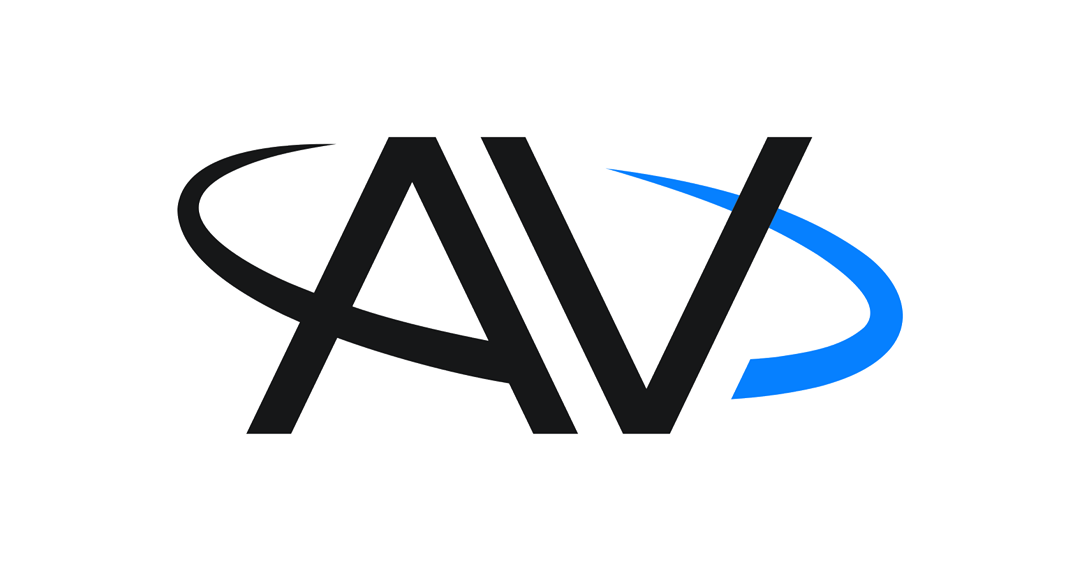
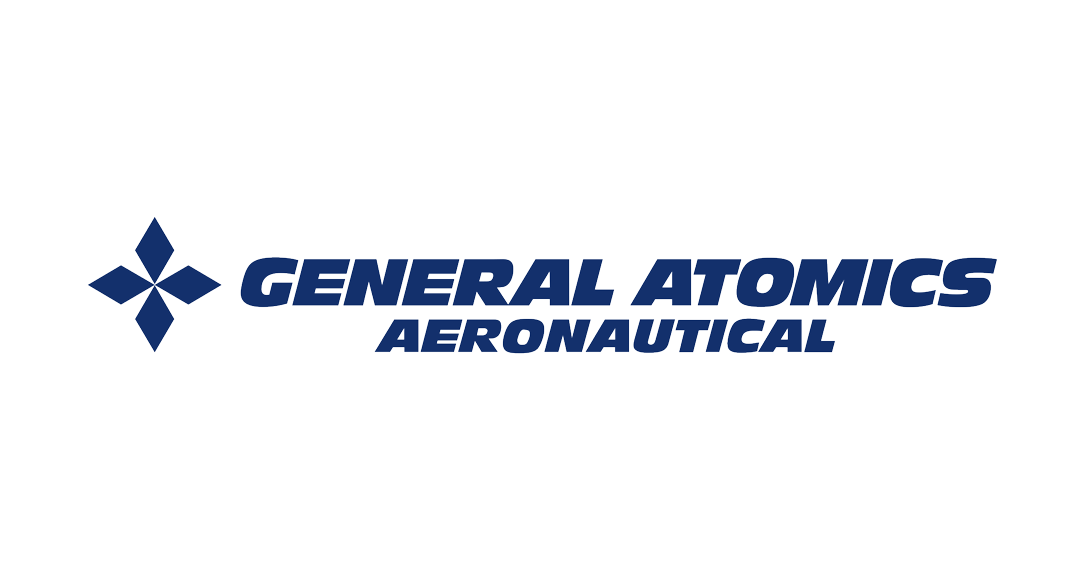



EVENT SPONSORS
Maverick
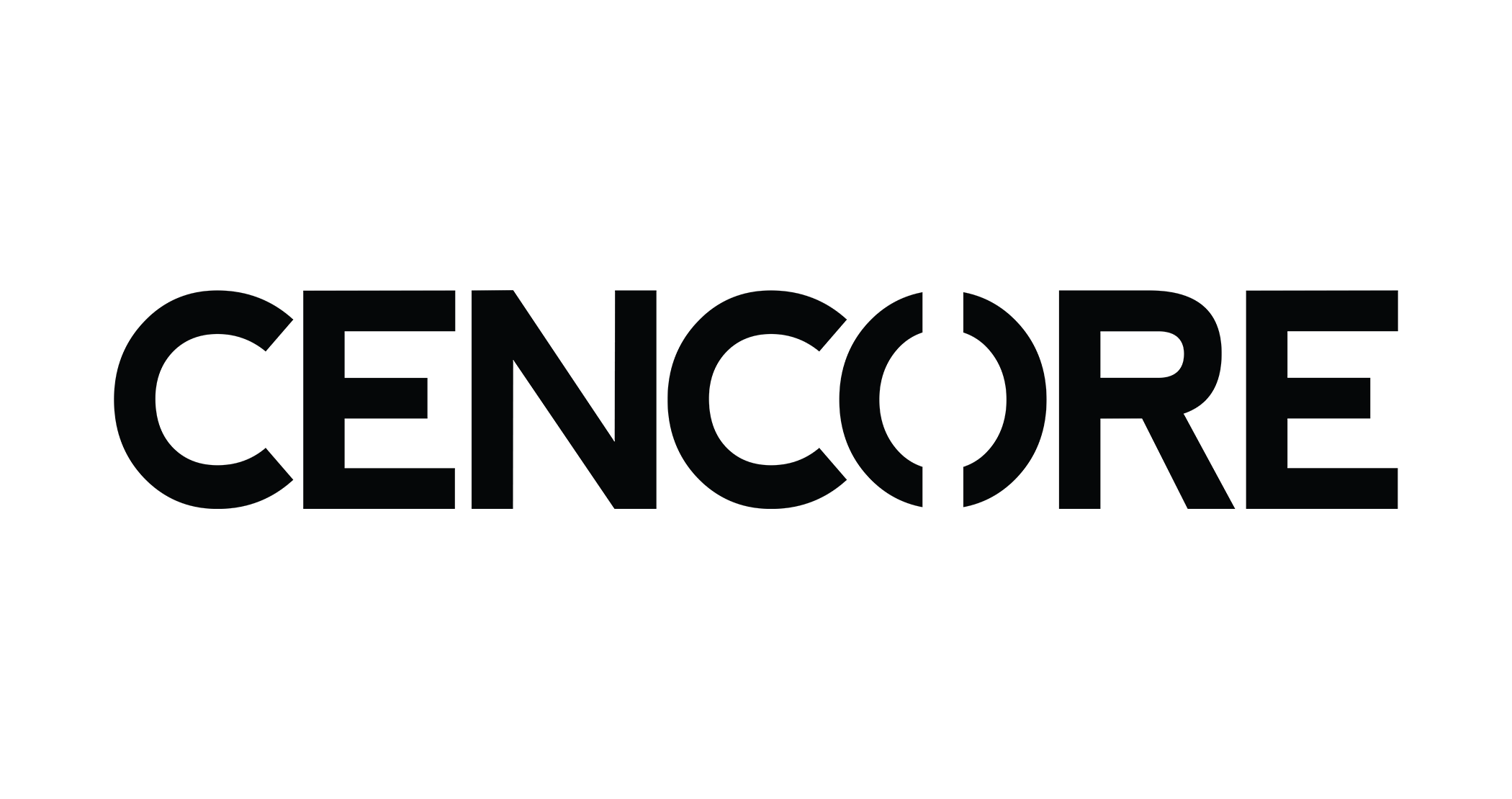

Trailblazer

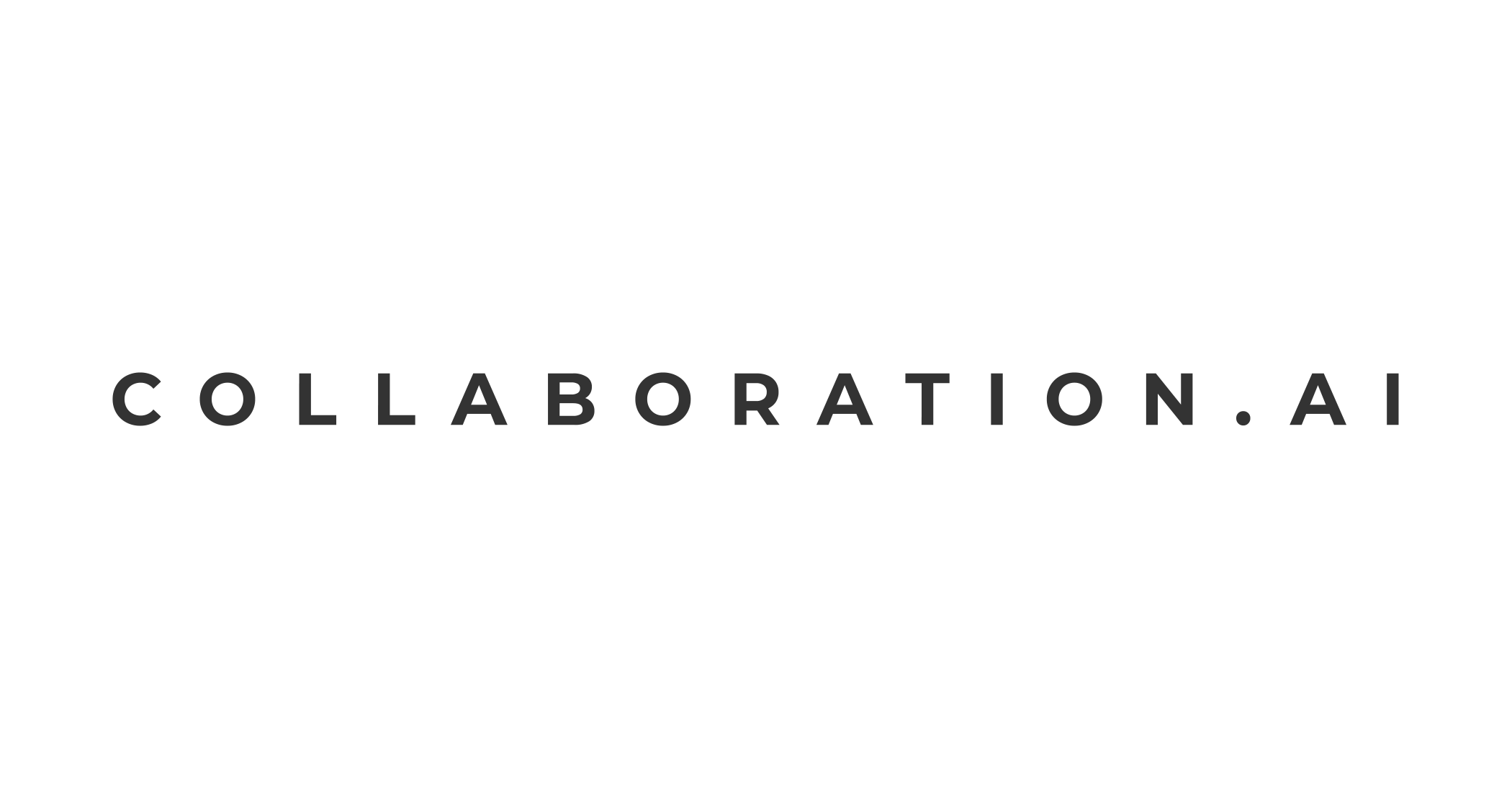



Game Changer


Disruptor

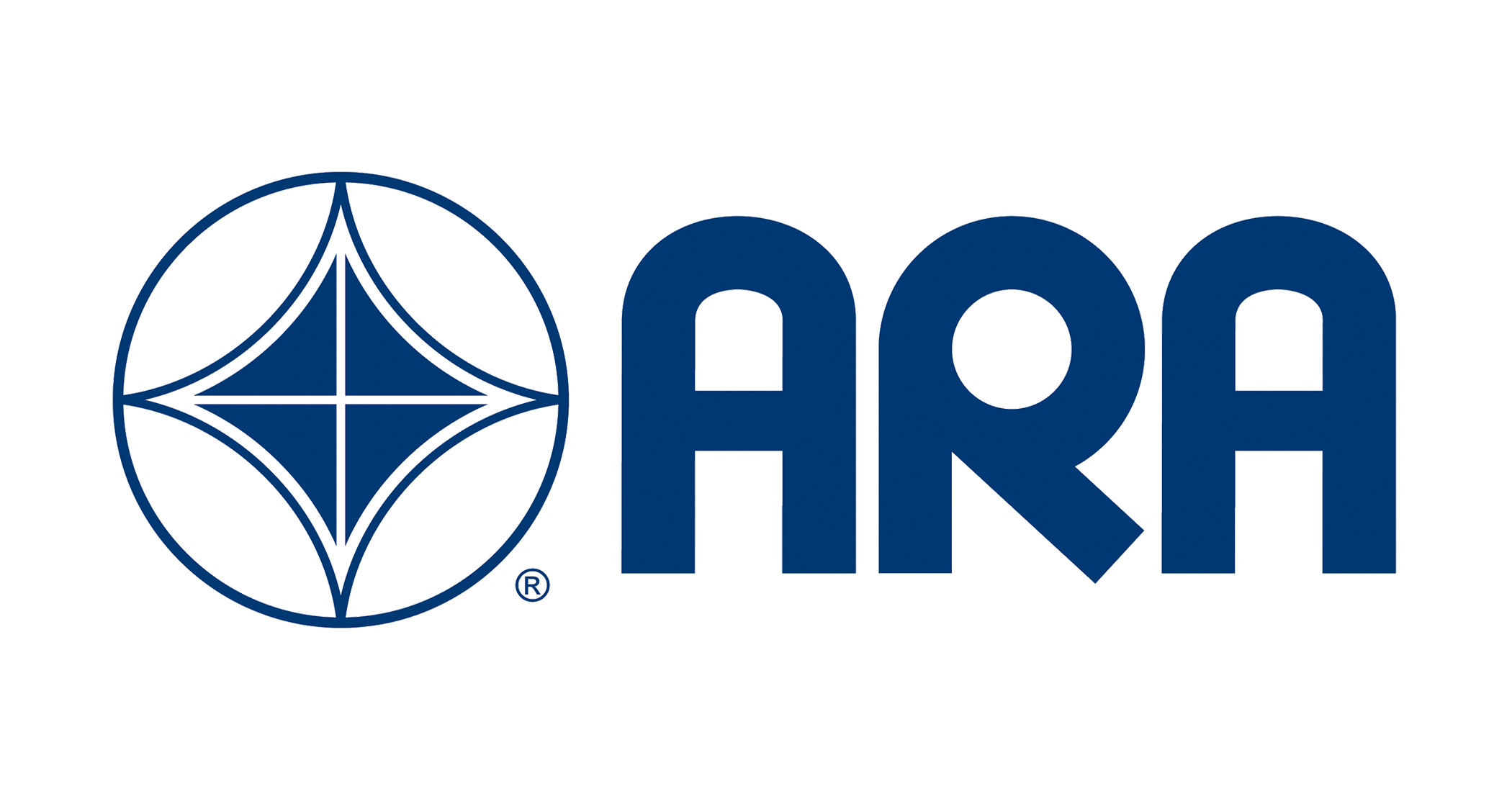
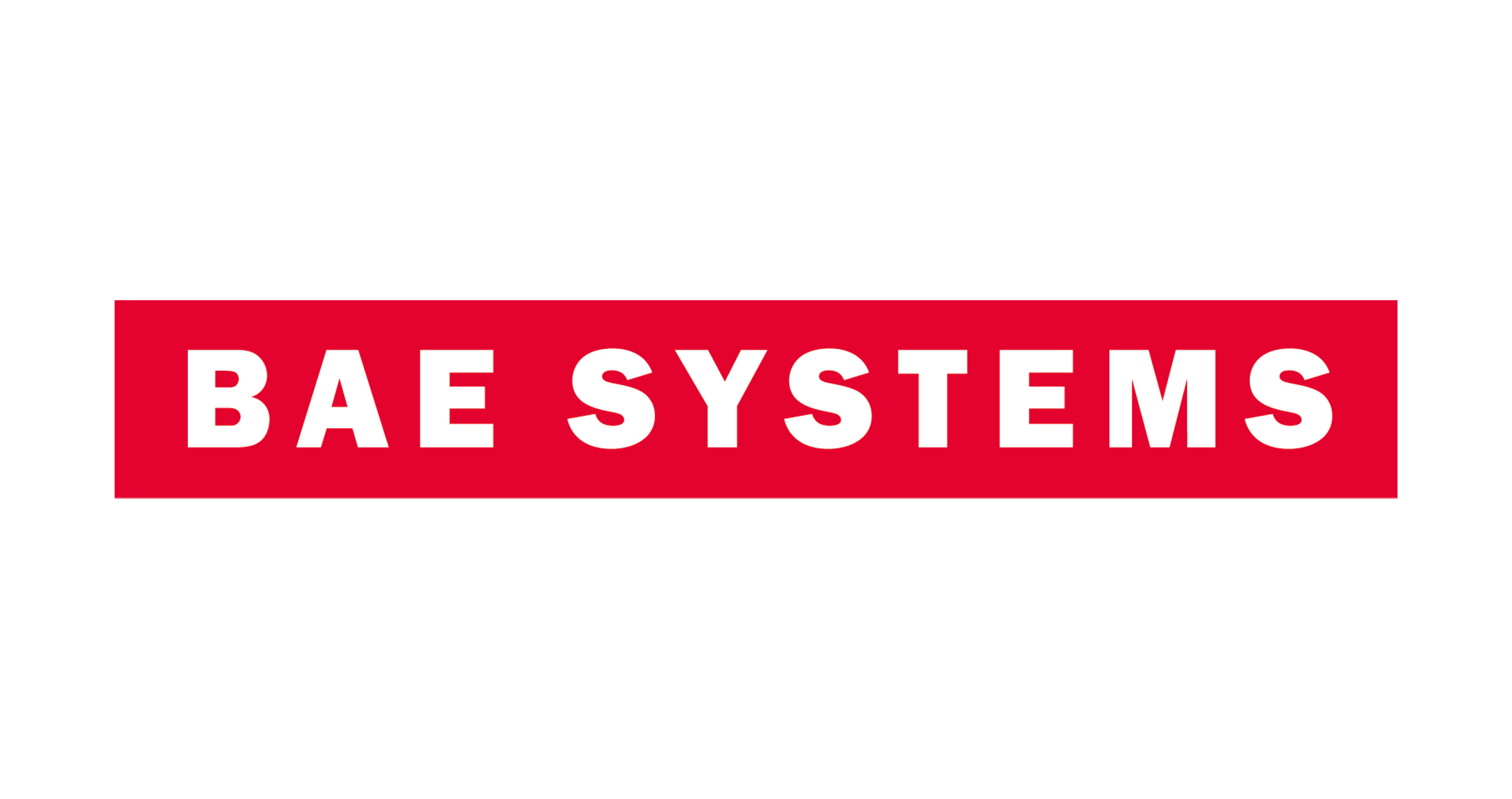



Startup



